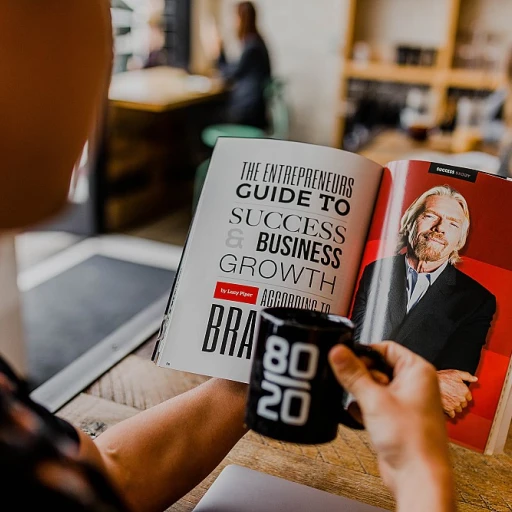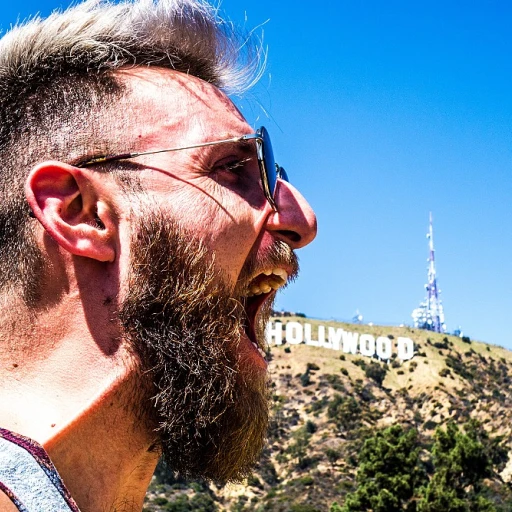
Understanding the Talent Coordinator Role
The Pivotal Role in Influencer Agencies
In the rapidly evolving digital landscape, the role of a Talent Coordinator has grown increasingly crucial in influencer agencies across metropolitan areas like Los Angeles. Operating at the intersection of influencer marketing and talent management, these professionals are tasked with ensuring seamless collaboration between creators, brands, and the agency itself. Talent Coordinators work tirelessly to manage relationships and navigate the ever-shifting social media ecosystem.
Bridging Creative Talent with Brands
Talent Coordinators act as a bridge between the creative minds of influencers and the strategic goals of brands seeking authentic content marketing solutions. They often find themselves operating closely with influencer talent and managers to align marketing strategies that resonate with target audiences on various social media platforms.
Their work involves a keen understanding of both the talent's capabilities and brand's needs, ensuring successful brand partnerships that are beneficial for all parties involved. This balancing act is essential for maintaining the delicate ecosystem that supports influencer marketing.
Shaping the Future of Talent Coordination
As the digital world continues to expand, Talent Coordinators are at the forefront of evolving practices, utilizing both traditional and innovative approaches to influencer talent management. Their expertise becomes indispensable as agencies strive to integrate more efficient systems for effective talent coordination. This evolving role underscores the importance of continually adapting to new tools and methodologies to unlock the full potential of such jobs. Learn more about unlocking the potential in talent management.
The Intersection of Human Resources Tech and Influencer Agencies
The Synergy Between Human Resources Technology and Influencer Agencies
In the rapidly evolving world of influencer marketing, the role of a talent coordinator is pivotal. Situated at the crossroads of human resources technology and influencer agencies, talent coordinators leverage advanced tools to streamline operations and optimize performance. Let's explore how this intersection reshapes the landscape of influencer management. Influencer agencies, particularly those based in major hubs like Los Angeles, are increasingly turning to digital solutions to manage their vast networks of creators, influencers, and brands. By incorporating human resources technology, these agencies can efficiently handle processes such as recruitment, assessment, and management. Key benefits include:- Streamlined Recruitment: With the help of AI-driven platforms, agencies can quickly identify and onboard top-tier talent from a pool of content creators. These platforms not only speed up the recruitment process but also enhance the accuracy of talent matching.
- Data Management: Advanced HR software allows for improved management of talent data, making it easier for coordinators to keep track of influencers' work, performance, and contracts. This ensures compliance with agency standards and privacy policies.
- Enhanced Collaboration: Human resources tech facilitates better communication and collaboration among team members, talent managers, and influencer talent. This is crucial in fast-paced environments where timely interactions can significantly impact brand partnerships and campaign success.
- Performance Analytics: Utilizing sophisticated analytics tools, talent coordinators can gain insights into influencer engagement and content performance. These metrics are vital for decision-making, enabling coordinators to tailor strategies that align with the goals of both creators and brands.
Challenges Faced by Talent Coordinators
Overcoming Common Hurdles in Talent Coordination
Navigating the dynamic environment of influencer marketing presents several challenges for talent coordinators. These professionals must juggle various tasks such as identifying promising creators, facilitating seamless brand partnerships, and fostering effective communication among teams. Talent coordinators often find themselves at the intersection of social media and brand management. The role demands a deep understanding of both trending digital marketing strategies and the inner workings of influencer agencies. In essence, they are expected to balance influencer needs with agency goals while ensuring compliance with privacy policies. Moreover, talent coordinators in bustling metropolitan areas like Los Angeles face unique pressures. The fast-paced nature of the city imposes tight deadlines and a constant demand for fresh content. Coordinators must also address geographical concerns; many influencer talents are decentralized, requiring coordinators to apply remote strategies efficiently. Another significant challenge lies in maintaining harmonious relationships between creators and talent managers. Misalignments can lead to dissatisfaction and ultimately impact the success of influencer marketing campaigns. Therefore, collaborative skills are crucial for talent coordinators aiming to deliver successful outcomes across media and social platforms. The evolving legal landscape and corporate policies further compound these challenges. As talent coordinators comply with regulations, data protection laws, and agency rules, they must stay informed and adaptable. To manage these challenges effectively, leveraging recent advancements in HR tech is crucial. Innovative tools can facilitate optimized workflows, clear communication channels, and efficient talent management. Aspiring coordinators can enhance their expertise by exploring resources like the HR Tech Institute’s article on affirmative action training, which offers valuable insights into fostering a diverse and inclusive work environment. Through continuous adaptation and strategic use of technology, talent coordinators can successfully navigate the demands of their roles in influencer agencies.Leveraging Technology for Effective Talent Coordination
Navigating Technology to Streamline Talent Coordination
In the competitive world of influencer marketing, the integration of advanced technology is essential for effective talent coordination. As influencer agencies become more reliant on digital tools, it's crucial for talent coordinators to leverage these technologies to optimize their management practices. Utilizing social media analytics tools helps coordinators track the performance of influencers across various platforms, providing insights into content reach and audience engagement. These tools assist in identifying the right influencer for a specific brand partnership, ensuring that the marketing efforts align with the brand's goals. Moreover, centralized talent management systems can streamline tasks by consolidating all essential information about influencers in one place—making it easier for coordinators to access profiles, track campaign progress, and manage talent relationships efficiently. This technological advancement enhances the overall productivity of the agency team.Embracing Automation for Improved Efficiency
Automation plays a pivotal role in reducing repetitive tasks for talent managers, allowing them to focus on more strategic activities within talent coordination. From scheduling collaboration meetings to managing contract renewals, automation can handle a myriad of tasks that used to take up valuable time. This shift not only improves efficiency but also enables coordinators to foster better relationships with influencers and brands by dedicating more time to personalized communication. The recent surge in remote work has further amplified the importance of digital management tools. As more agencies operate from various locations such as Los Angeles or other metropolitan areas, these tools facilitate seamless communication and collaboration, ensuring that all team members—regardless of their location—remain connected and informed.Technology's Role in Shaping the Future
The continued integration of technology in influencer marketing is set to redefine the role of talent coordinators. Future advancements may bring forth even more sophisticated AI-driven analytics, offering deeper insights into influencer behavior and brand impact. Ultimately, the ongoing evolution of technology encourages talent coordinators to adapt and evolve their skill sets, ensuring they meet the ever-changing demands of the dynamic influencer marketing landscape. Remaining at the forefront of technological trends will undoubtedly enhance their capability to effectively manage and cultivate successful influencer campaigns.The Future of Talent Coordination in Influencer Agencies
The Evolution and Impact of Talent Coordination in Influencer Agencies
The landscape of talent coordination within influencer agencies is witnessing significant transformation, particularly in bustling hubs like the Los Angeles metropolitan area. As the industry continues to evolve, driven in part by digital marketing innovations and the ever-expanding social media sphere, the role of the talent coordinator has become pivotal. Today's talent coordinators must adapt rapidly to changes brought by technology and the demand for agile marketing strategies. The ability to manage talent efficiently has become a cornerstone for agencies seeking to forge successful brand partnerships and build lasting relationships with influencers and content creators. Adapting to Technological Advances The integration of technology in talent management enables coordinators to streamline processes, enhance communication, and optimize workflow. Digital platforms and management tools allow agencies to effectively handle remote applications and track influencer performance in real-time. These advancements not only save hours but also elevate the capability of coordinators to manage large teams across various locations. Partnerships and Collaboration in a Digital Era A successful talent coordinator must be adept at navigating partnerships between brands and influencers. In a digital-first world, where social media platforms are constantly evolving, the media landscape requires coordinators to possess both marketing acumen and technical expertise. This blend of skills is essential for sustaining relationships rooted in mutual growth and success. By understanding market trends and consumer behavior, coordinators can facilitate collaborations that align with the strategic goals of both influencers and brands. This requires a proactive approach to content strategy that resonates with target audiences and drives brand visibility. The Agile Coordinator of the Future As influencer marketing becomes increasingly sophisticated, the talent coordinator's role will likely continue to expand. This evolution will require not only updated technical skills but also a deep understanding of content creation dynamics. Staying ahead of shifts in platform algorithms and privacy policies will be critical as agencies strive to maintain their competitive edge. In conclusion, the future of talent coordination in influencer agencies is poised for exciting developments. Coordinators who can harness the power of technology while cultivating strong interpersonal relationships will thrive in the digital age, turning challenges into opportunities for growth and innovation.Case Studies: Success Stories in Talent Coordination
Spotlighting Real-World Success in Talent Coordination
In the fast-evolving world of influencer agencies, talent coordinators have become indispensable. Their role bridges the gap between social media influencers and brands, ensuring seamless collaborations that drive marketing success. Let's highlight some notable examples of effective talent coordination that's reshaping how agencies operate in the influencer industry.- Innovative Talent Coordination at a Leading Los Angeles Agency: A renowned agency in the Los Angeles metropolitan area successfully harnessed the power of human resources tech to enhance its talent management practices. By implementing cutting-edge digital marketing tools, the talent coordinators were able to streamline the process of matching influencers with brands, leading to increased efficiency and satisfaction for all parties involved.
- Remote Collaboration and Enhanced Content Creation: With the growing trend of remote work, a forward-thinking agency leveraged talent coordination technology to facilitate effective remote apply processes. Coordinators used advanced algorithms to identify potential influencer talent based on specific campaign needs. This not only optimized the influencer manager's workload but also ensured that content creator collaborations were aligned perfectly with brand objectives.
- Increased Brand Partnerships through Strategic Talent Management: In a competitive landscape, a major talent manager in social media marketing utilized human resources tech to foster stronger brand partnerships. By meticulously analyzing data and refining recruitment strategies, the agency's talent coordinators improved their matchmaking process, leading to more meaningful partnerships and impactful marketing strategies.













